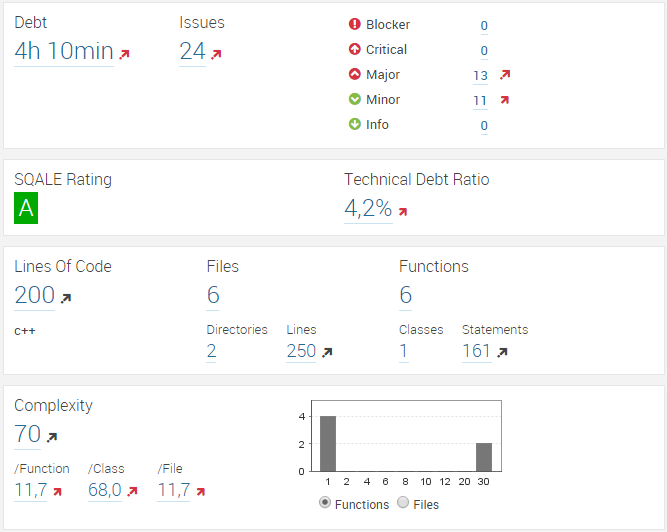SourceMeter for C/C++ with open-source SonarQube plugin released
FrontEndART has release a new version of their SourceMeter.
SourceMeter 7.0 released with support for C/C++
by FrontEndART team
From the article:
Most important product characteristics of SourceMeter:
- Platform-independent command line tools
- Transparent integration into build processes
- Coding issue detection
- Clone detection (copy-pasted source code fragments) extended with clone tracking and "clone smells"
- Metrics calculation at component, file, namespace, class, function and method levels
- C++14 support (almost complete, based on EDG front-end)
- SonarQube plug-in

 Read about a REPL allowing to test things rapidly in C++:
Read about a REPL allowing to test things rapidly in C++:.jpg) Here is a new library to perform pattern matching:
Here is a new library to perform pattern matching: This just in:
This just in: Also announced this week:
Also announced this week: